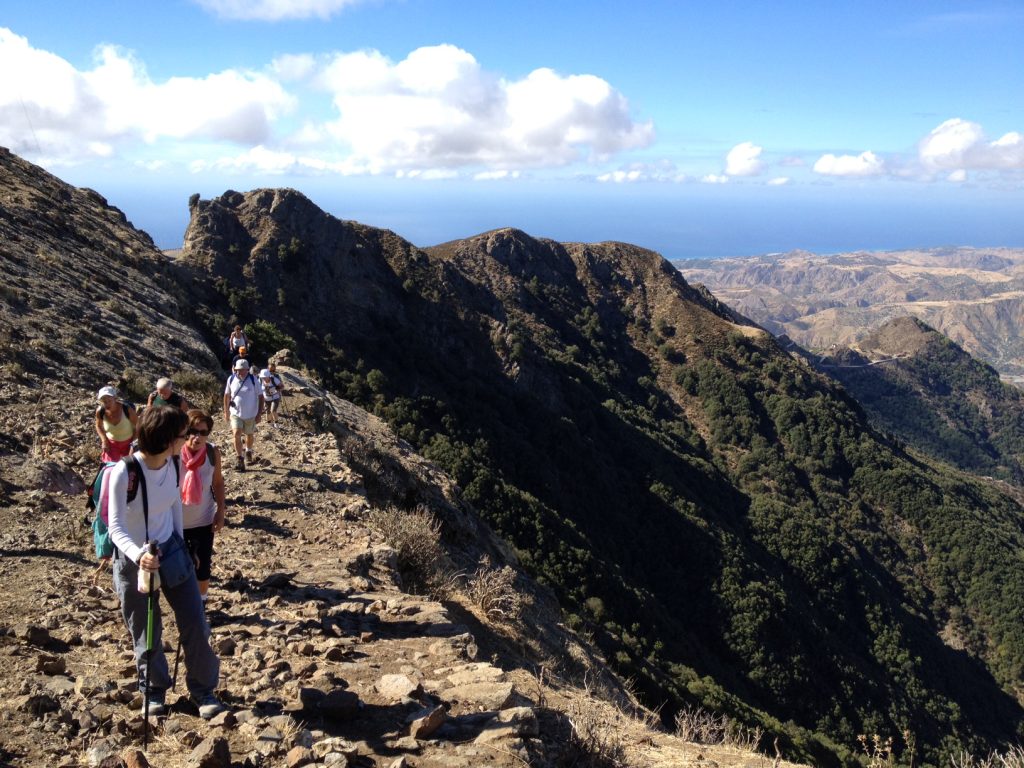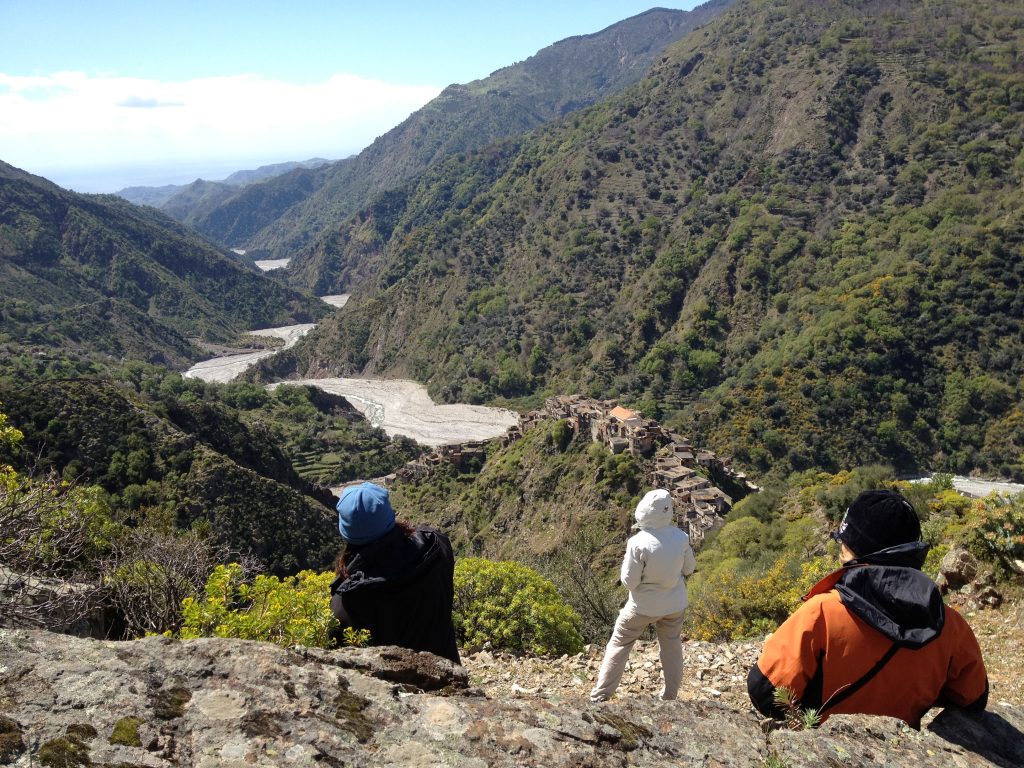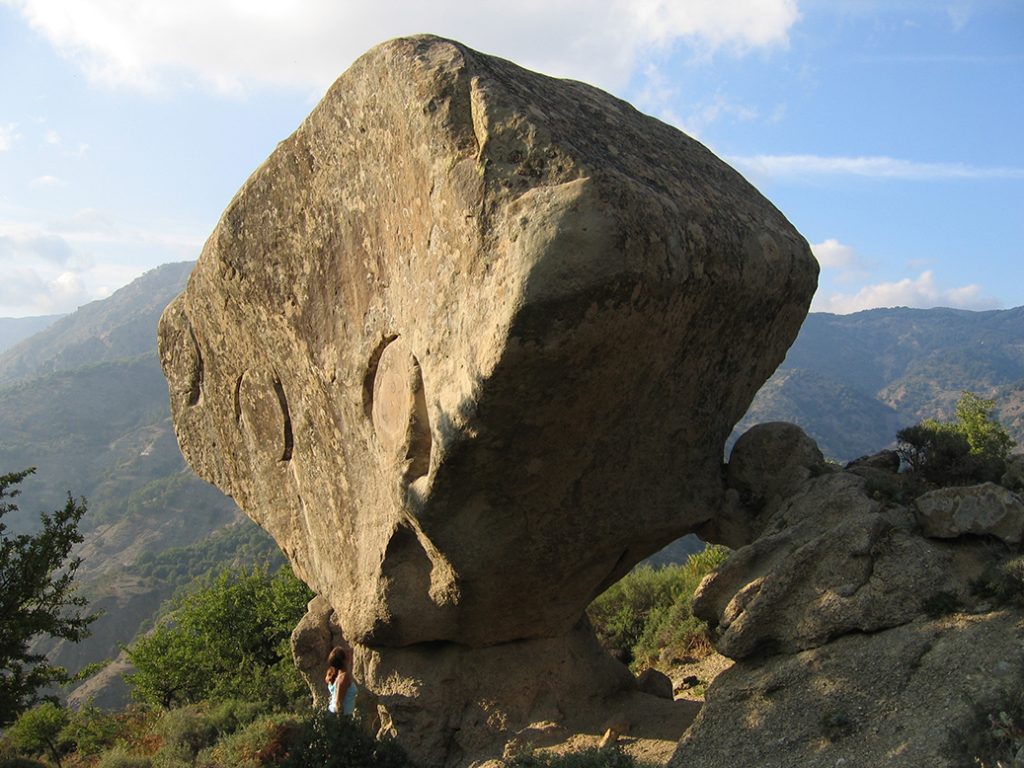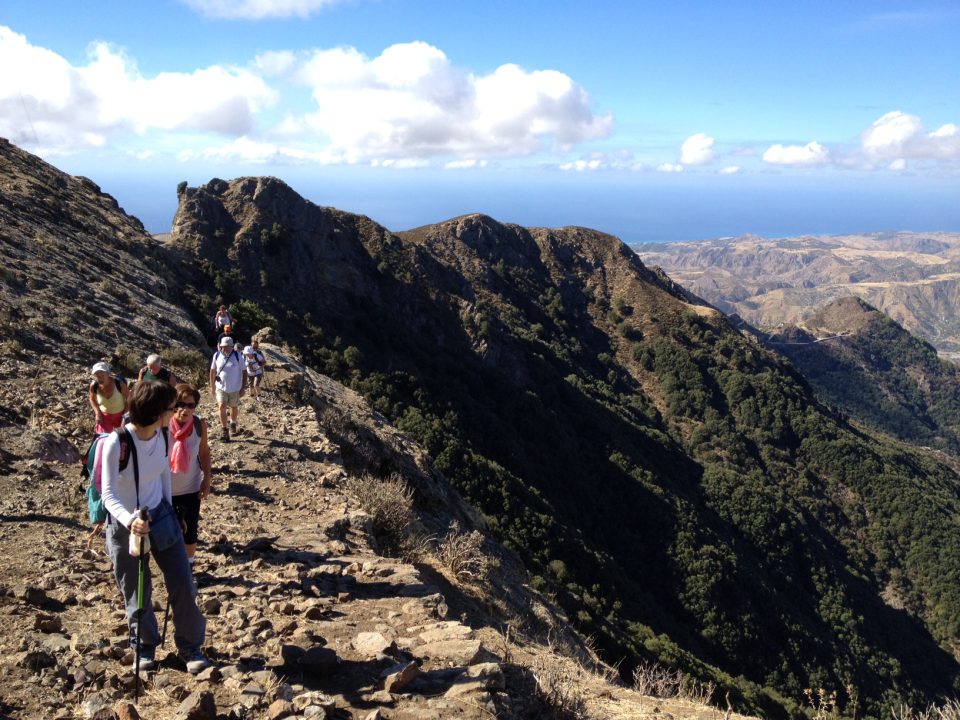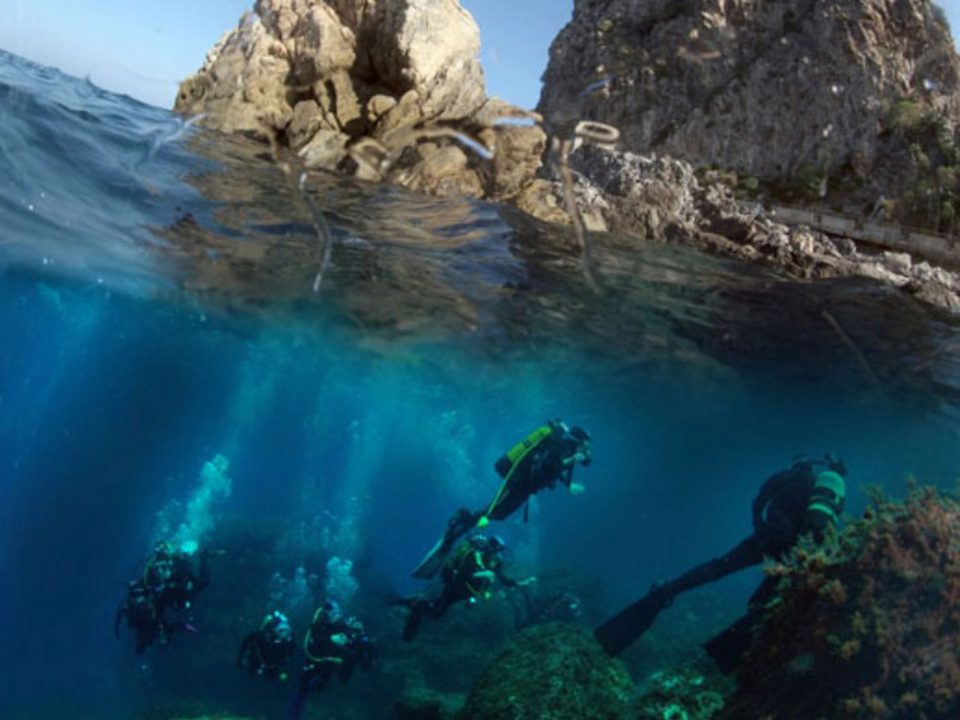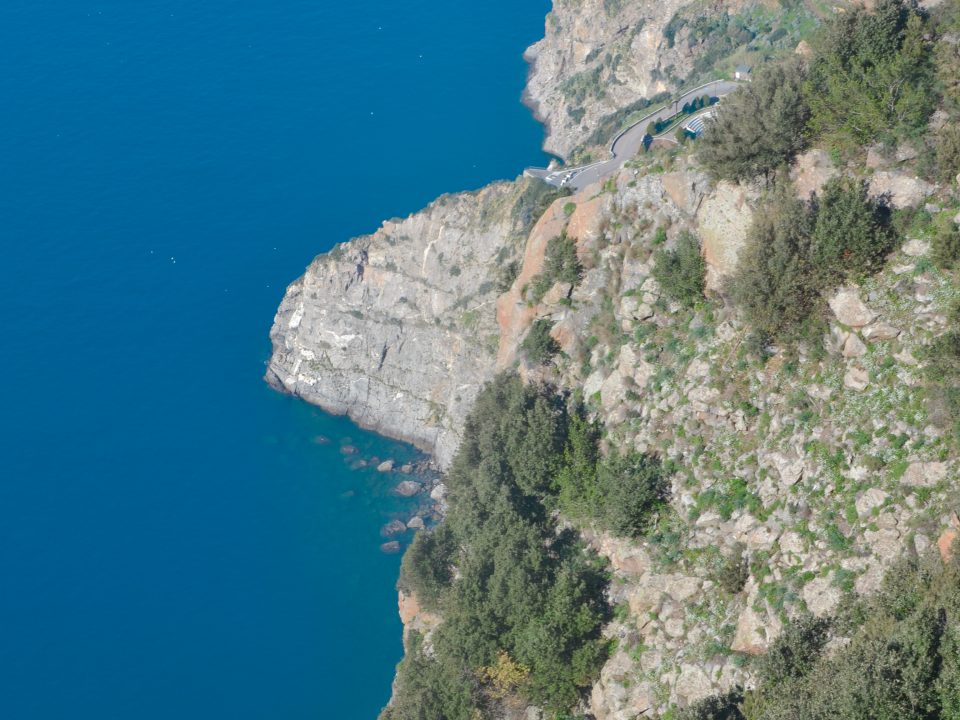“Pis trechi glìgora de thorì tìpote”, He who goes fast sees nothing.
Introduction:
In the extreme point of the Italian peninsula, between the Tyrrhenian Sea and the Ionian Sea, within Aspromonte National Park, lives the linguistic minority of the Greeks of Calabria. The proposed trek offers the chance to get to know this corner of southern Italy far from mass tourism, where “Greekness” is still alive in its people’s traditions, in the Greek dialect that can still be heard in the picturesque villages of Gallicianò, Bova and Roghudi, in the ruins of the endless Byzantine churches, in the traditional music and cuisine. You will walk along ancient paths that cross a wild landscape marked by peaks, forests, bergamots, rivers and adorned with beautiful flowers.
Duration of the trek:
7 days / 6 nights.
Accommodation and food:
Accommodation is provided in B&B, flat and/or agriturismo belonging to “Ospitalità Diffusa” network. Food will be provided by restaurants and small trattorias run by local associations and cooperatives, with exclusively traditional menus.
Excursions:
this is not extreme trekking, with walks that do not present any significant difficulty. However, we recommend a few training hikes before setting off. There are 4 to 6 hours of walking per day.
Baggage:
you walk every day with a light backpack.
Travel programme
Day 1: Welcome to Greek Aspromonte and the land of Bergamot!
Meet with the guide at 2 p.m. at Reggio Calabria Centrale Railway Station. Transfert (45′) of people and luggages to Amendolea di Condofuri (RC) for accommodation at “Il Bergamotto” farmhouse, producer of organic Bergamot. Welcome and presentation of the travel programme. Dinner and overnight stay at the agriturismo.
2nd day: Gallicianò, the most Greek village in Italy and ethno-musical Grecanica homeland.
Breakfast. Walking excursion of 2 hours 30′ with departure from the farmhouse “Il Bergamotto”: farmhouse “Il Bergamotto” (mt.120) / Fiumara Amendolea (mt.120) /
m. Maradha (mt.463) – Palazzine (mt.553) – Gallicianò (mt.621) (Gallicianò, inside the national park: the most Greek village in Italy, ethno-musical Grecanica homeland). Lunch in Gallicianò. After lunch, visit to the small Orthodox church and ethno-Greek musical entertainment. Afterwards, a 2 hour 30′ walk on fiumara Amendolea starting from Gallicianò: Gallicianò (mt.621) – fiumara Amendolea locality Oleandri/ruderi mulino Focolio (mt.253) – Amendolea (mt.120). Dinner and overnight stay at “Il Bergamotto”.
Day 3: The National Museum of Reggio Calabria and Pentedattilo.
Breakfast. Afterwards, transfer to Reggio Calabria for a guided tour of the city and Magna Graecia Museum where the famous Riace Bronzes are kept. Walk along the city’s seafront, said to be the most beautiful kilometre in Italy by Italian poet D’Annunzio. Restaurant for lunch at the choice of the participants. Early afternoon transfer (45′) to Pentedattilo, from the Greek word Pentedàktylos, meaning ‘five fingers’. The small, semi-abandoned village, a real ethno-architectural jewel, retains its charm and is a true historical heritage to be known and protected. Guided tour of the village with a short walk through the typical narrow streets. Return (45′) to the farmhouse for dinner and overnight stay.
Day 4: towards the Chora (City) of Grecanica area!
Breakfast and delivery of packed lunch. Guided visit to the company producing bergamot, a famous citrus fruit that grows only in this area and nowhere else in the world; from this unique citrus fruit, with the shape of an orange and the colour of a lemon, an essential oil is extracted from the peel, which is used as a fixer of all the components of perfumes, but also used in cosmetics and confectionery. To follow, excursion from “Il Bergamotto” holiday farm: Amendolea (mt.120) / M. Brigha (mt.610) / Bova (mt.850). Excursion time: about 4 hours.
Bova is the capital of Grecanica Area, the most important and well-preserved old town of the Greeks of Calabria; the hospitality of its 500 inhabitants is warm. Accommodation in flats (B&B and houses being part of “Ospitalità Diffusa” network) equipped with many services. Typical dinner at Grecanico restaurant by San Leo Cooperative. Overnight stay in Bova.
Day 5: The characteristic and intriguing abandoned village of Roghudi.
Breakfast and delivery of packed lunch. Excursion: loc. Polemo di Bova (alt. 810 mt.) / loc. Mandùddhuro (mt 831) / loc. Lestizi (alt. 662 mt.) / loc. Spartusa (alt. 671 mt.) / Lo. Pecorella (alt. 859 mt.) / Vecchia Strada (1005 mt) / Fiumara Amendolea (mt 338) centre of Roghudi vecchio (527 mt). From Roghudi transfer in 30’ to Bova with a stop at the curious and unique rock formations of “Rocca del Drago” (the Dragon’s Rock) and “Caldaie del Latte” (Milk Boilers).
Excursion time: about 6 hours. Dinner and overnight stay in Bova.
After dinner: Greek music festival with traditional music and dances.
Day 6: On the road to wine and the Ionian Sea!
Breakfast and delivery of packed lunch Excursion: Piazza Roma of Bova (mt.820) / high part Fiumara San Pasquale (mt 420) / Monte Agrappidà (mt.690) / Palizzi superiore (mt.272); excursion time: 6h including stops. On arrival visit to the typical village “crib” of Greek Calabria and then to the “Catoio” (old cellar), for a tasting of Palizzi’s wine. Then return to Bova, with the option of taking a swim in the Ionian Sea. Dinner and overnight stay in Bova.
Day 7: Visit to Bova and departure
Breakfast. Tourist, historical and archaeological visit to the flourishing town centre of Bova, one of the Most Beautiful Villages in Italy (I Borghi più belli d’Italia), hosting noble palaces, narrow streets, the Sanctuary of San Leo, the Cathedral and the ruins of the Norman Castle. Afterwards, visit to “Gerhard Rohlfs” Museum of the Greek-Calabrian language. A tour of this original museum provides a closer look at Griko dialect, its history and archaic origins.
Transfer to Reggio Calabria train station and end of the tour.
Note:
the above programme may be subject to changes in case of bad weather conditions or on the guide’s advice. There will be moments of traditional music and dancing.

